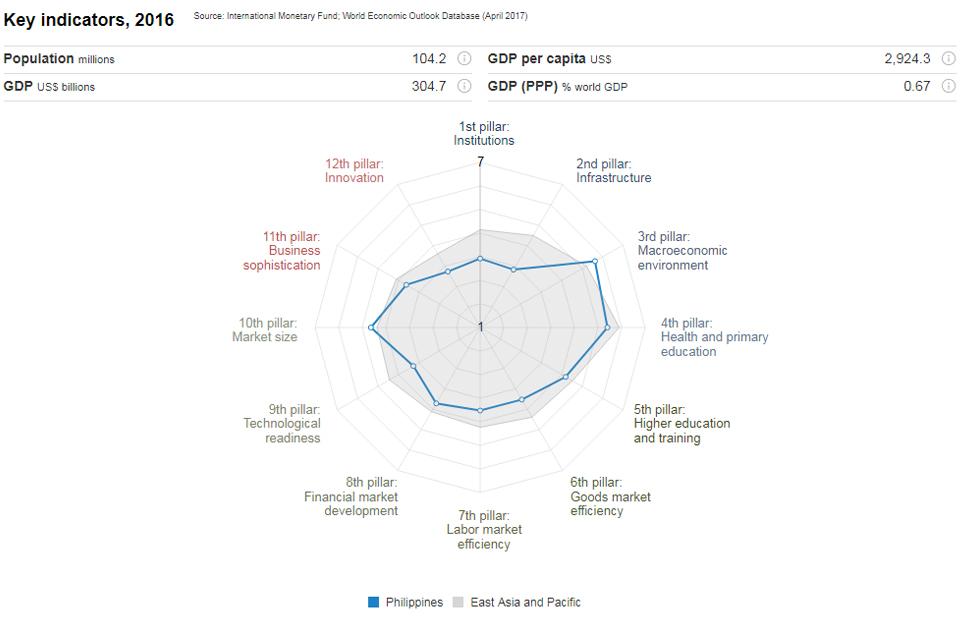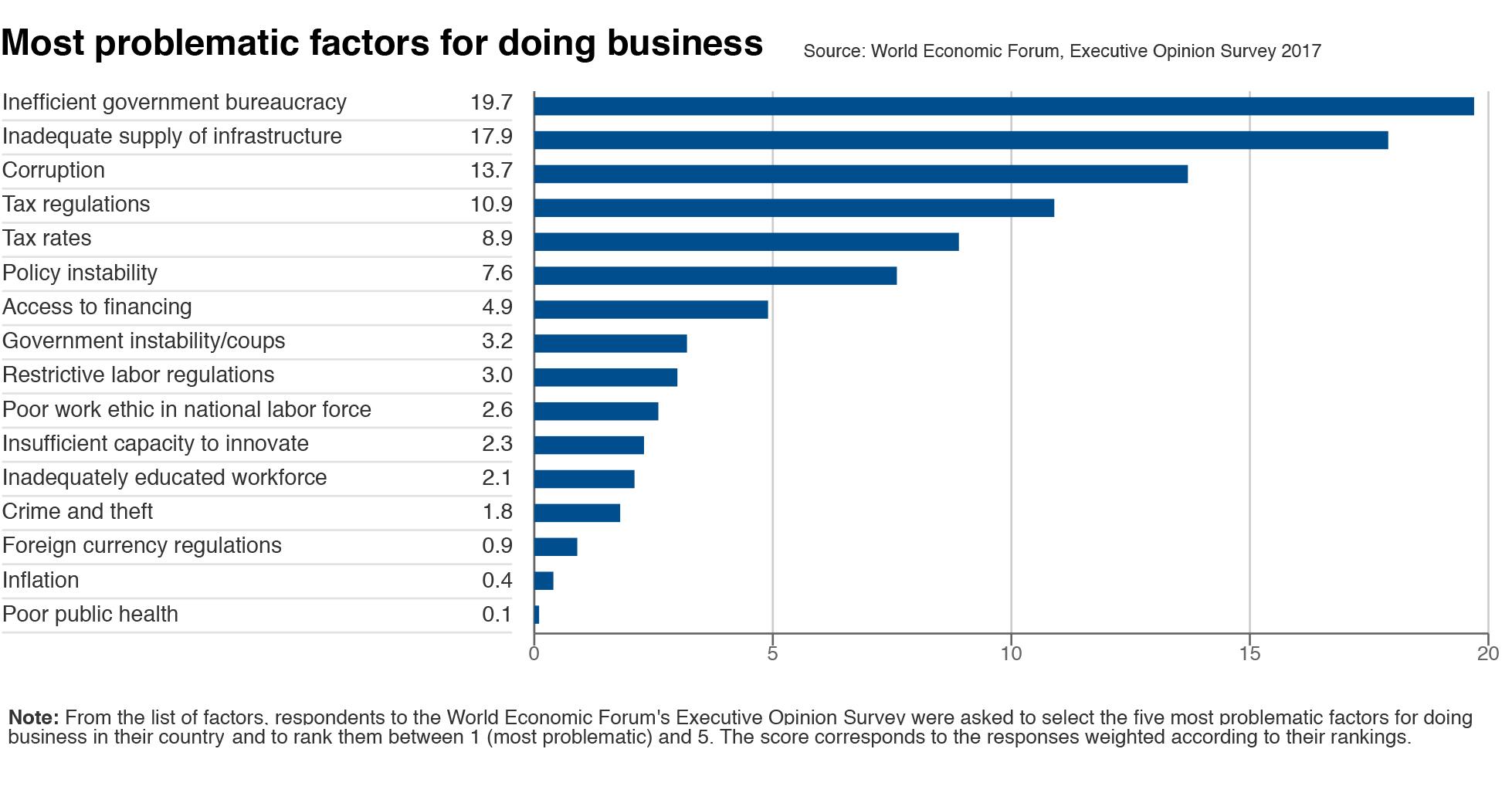PHL ranks 56 from 57 in WEF's global competitiveness index —NCC

The Philippines ranked 56th out of 137 economies worldwide, from No. 57 last year, the National Competitiveness Council-Philippines (NCC) said on Wednesday, citing the latest World Economic Forum (WEF) Global Competitiveness Report.
Basically, the Philippines held steady versus its ranking of No. 57 last year. The country maintained its score of 4.4 on a scale of 7, according to the NCC.
"For investors surveyed by the World Economic Forum, the key challenges associated with the Philippines continues to be the inefficient government bureaucracy, inadequate infrastructure, corruption, tax regulation, and tax rates, the council noted.
The NCC noted the 10-point socioeconomic agenda of the Duterte administration is now addressing those issues.
A strong area of performance for the country was macroeconomic environment—ranked No. 22 in the report.
"The country is ranked highly in such areas as inflation management (No. 1), government debt as a percentage of GDP (No. 33), country credit rating (No. 48), and, government budget balance as a percentage of GDP (No. 24)," the NCC said.
The country's total score dipped by 0.01, even if its ranking was actually up by a notch, but NCC Co-Chairman Guillermo M. Luz dismissed the decline. "We observed a number of countries with a drop in score. Our drop was smaller (just 0.01)," Luz told GMA News Online.
But Luz acknowledged a pressing need to improve infrastructure investment and diminish government bureaucracy for the Philippines to climb significantly higher in the rankings.
"We're happy to gain in ranking, if only a bit, but definitely need to do more," he said.
"Immediate areas of attention should be infrastructure and government bureaucracy. Also, need constant focus on education because that is only way to prepare for business and jobs of the future," he added.

In the Infrastructure sector, the Philippines did poorly in terms of quality of airports (No. 124), ports (No. 114), and roads (No. 104), and was able to get an overall Infrastructure ranking of 95.
In the short term, Luz said "we should concentrate on infrastructure, government bureaucracy, and education" while in the medium to long-term, "we should concentrate on education, science and technology, innovation."
Infrastructure is a major constraint. The Ph Govt is committed to addressing this constraint, as reflected in its fiscal & devt program.
— Arsenio Balisacan (@ambalisacan) September 27, 2017
Other indicators in which the country ranked low were time to start a business (No. 116), burden of customs procedures (No. 125), agricultural policy costs (No. 115), labor redundancy costs (No. 116), and government procurement of advanced technology products (No. 91).
"The last indicator illustrates the relatively low use of technology in government services," according to the NCC. — With Ted Cordero/Jon Viktor Cabuenas/VDS, GMA News



